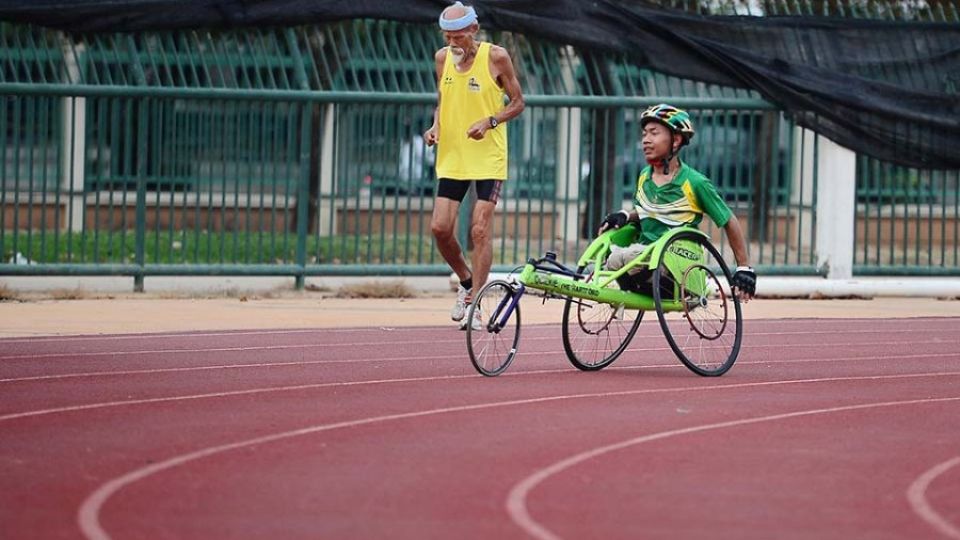September 6, 2024
JAKARTA – Over the past decade, our para-athletes have proven their ability to win medals in Paralympic Games, the highest level of para-sports competition.
And we are truly proud of them.
As this year’s quadrennial tournament comes to an end in Paris on Sept. 8, Team Indonesia has so far claimed 12 medals (one gold medal, six silver and five bronze), a satisfying result given that its target was one gold, two silver and three bronze.
It may not equal the previous Tokyo Paralympics achievement of two gold, three silver and four bronze in 2021, but in the total number of medals, our para-athletes have shown stellar development in the 2024 Paralympics.
In Paris, the Indonesian squad created two historic Paralympic records, in boccia and badminton.
On Sunday, Paralympians Bintang Satria Herlangga, Gischa Zayana and Muhamad Afrizal Syafa earned Indonesia three of its first-ever medals in boccia with a silver and two bronze.
Originally developed for people with coordination impairments, boccia is a precision ball game similar to lawn bowling that made its Paralympic debut 40 years ago. It is one of two sports in Paris this year without an Olympic counterpart, according to the Paris Games’ official website.
The next day, our para-shuttlers made it possible for the national anthem “Indonesia Raya” to be played in the stadium following a solid all-Indonesian final. In total, the badminton squad contributed eight medals to the tally.
Leani Ratri Oktila and Hikmat Ramdani won the country’s first Paralympics gold medal, after beating compatriots Khalimatus Sadiyah and Fredy Setiawan, who took silver, in the mixed doubles SL3/SU5 category.
The SL3/SU5 category is for athletes who play standing with a lower limb impairment and those with impairment of the upper limbs, including the playing or non-playing hand.
Leani also won a silver medal for Indonesia in the women’s singles SL4 category for athletes exhibiting lower extremity impairment and mild balance problems after she lost to China’s Cheng He Fang.
The 33-year-old female shuttler remains the brightest Paralympian for Indonesia as she has collected a total of three gold and two silver, overall, in the Tokyo and Paris Paralympics.
More badminton medals came from silver medalists Qonitah Ikhtiar Syakuroh in the women’s singles SL3 category, Suryo Nugroho in the men’s singles SU5 category, as well as bronze medalists Subhan and Rina Marlina in the mixed doubles SH6 category (for short stature and standing athletes), and Deva Anrimusthi and Fredy Setiawan in the men’s singles SU5/SL4 category.
In para-athletics, 25-year-old Saptoyogo Purnomo on Saturday grabbed silver after recording a time of 11.26 seconds in the men’s 100-meter sprint in the T37 category for athletes with coordination impairments.
This year, Indonesia sent 35 para-athletes to Paris, a much larger team compared with 23 para-athletes in Tokyo, where they brought home a total of nine medals.
The government reportedly handed over Rp 36.2 billion (US$2.34 million) to the National Paralympic Committee (NPC) of Indonesia to financially support the para-athletes to win Paris medals. In the meantime, their 29 compatriots in the Paris Olympics national squad reportedly received around Rp 40 billion from the state budget to compete in the quadrennial event.
Similar to preparations during the previous Paralympics, the para-athletes were again accustomed to a quieter prep for Paris as they kept their focus on the intensive training program centered in Surakarta, Central Java.
Despite the lower-key support and media reports as compared with their Olympian counterparts, the Paralympians, with the help of coaches and assistants, remain committed to their goals.
Their hard work and achievements are enough proof for the government to pay a little bit more attention to our deserving para-athletes.
Because, cash rewards after medals are one thing, but continued financial support to help para-athletes achieve their highest peak at the Paralympics is an honorable deed.


